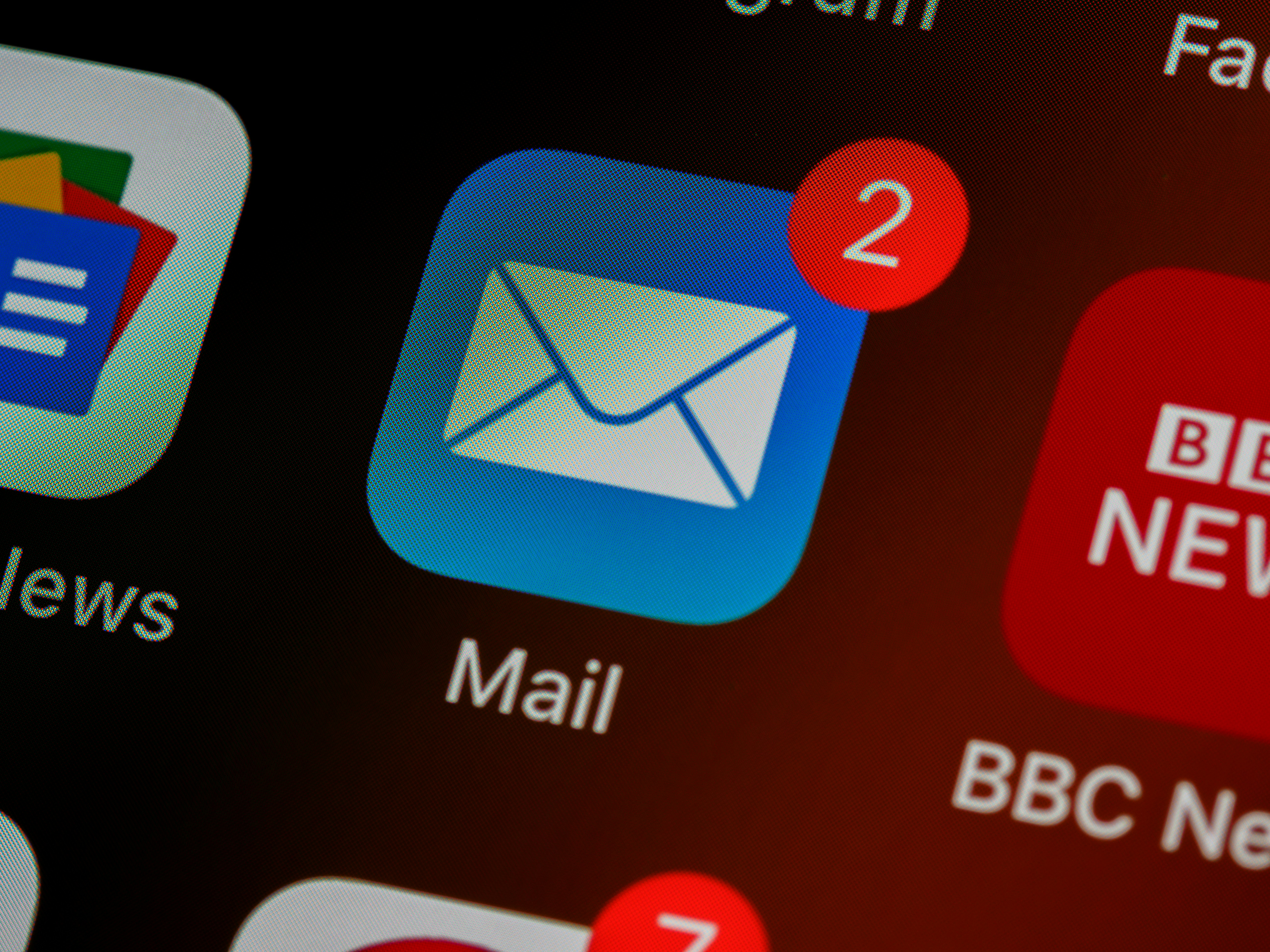
Artificial Intelligence (AI) is revolutionizing email marketing, transforming it into a highly customized and interactive experience.
By leveraging technology to analyze consumer behavior, preferences, and engagement patterns, businesses are crafting emails that resonate more deeply with each recipient.
With AI tools, the era of generic mass emails is fading, making way for personalized communication that significantly boosts open rates and conversions.
The possibilities for enhancing your brand’s connection with its audience are now virtually limitless.
Keep reading to discover how AI can elevate your email marketing efforts to new heights of effectiveness.
Key Takeaways
- Artificial Intelligence Is Revolutionizing Email Marketing by Personalizing Content at Scale
- AI-driven Personalization Enhances Engagement Rates by Delivering Relevant and Timely Messages
- Integrating AI Tools Into Email Marketing Strategies Requires a Balance Between Automation and Authenticity
- Advanced Technologies Like Augmented Reality and Sentiment Analysis Are Set to Further Personalize Email Content
- Continuous Monitoring and Adjustment of AI Applications Are Essential for Maximizing Email Campaign Effectiveness
The Role of AI in Crafting Personalized Email Content

Artificial Intelligence (AI) is fundamentally altering how businesses approach email marketing, delivering capabilities that were once thought to be the sole province of human creativity.
By leveraging AI, companies can now automate the generation of email content that resonates on a personal level with recipients.
This section delves into the intricacies of AI’s role in content creation, spotlighting the innovative technology that powers AI-written emails.
It further explores the tangible benefits this crafted content brings to engagement rates and provides tangible examples of how AI-powered personalization is setting new standards in email marketing strategies.
Through this exploration, marketers gain insight into leveraging AI to not only enhance the efficiency of their campaigns but to forge deeper connections with their audience.
Understanding AI’s Capability in Content Creation
Artificial intelligence is redefining email content creation by utilizing advanced algorithms and machine learning techniques. It analyzes vast amounts of customer data, identifying patterns and preferences that guide the generation of highly tailored messages. This capability allows for the automation of content personalization at scale, ensuring each recipient feels the message was crafted specifically for them, thereby enhancing the connection between brand and consumer.
The Technology Behind AI-written Emails
The heart of AI-written emails lies in a blend of cutting-edge technologies like natural language processing (NLP) and machine learning. These tools enable a system to learn from data patterns, understanding customer behaviors and preferences at a granular level. From this rich insight, AI intelligently crafts content that feels both personal and relevant to each recipient.
- AI analyzes historical data and behavior to understand individual preferences and interests.
- Machine learning algorithms adapt and evolve based on feedback and interaction, constantly refining the approach to personalization.
- Natural language processing interprets and generates human-like text, ensuring the email content resonates with the reader’s expectations and language style.
Benefits of AI-crafted Content for Engagement
The implementation of AI in email marketing has led to a notable increase in engagement rates. By tailoring content to match the unique preferences and behaviors of each recipient, AI ensures that messages not only capture attention but also encourage interaction, thereby transforming passive readers into active participants. This personalized approach fosters a sense of understanding and relevance, compelling users to engage more deeply with the brand’s message.
Examples of AI-powered Content Personalization
Retail giants and digital marketing firms are leading the charge in harnessing AI for personalized email marketing, crafting messages that adjust in real-time to user actions and preferences. A popular online store, for instance, might use AI to send targeted emails featuring products similar to those a customer has previously shown interest in, seamlessly blending predictive analytics with natural language generation to engage the shopper. This approach enhances the shopping experience, making promotional emails feel less like broadsides and more like messages from a knowledgeable friend who understands the customer’s tastes and needs.
Enhancing Email Campaigns With AI-driven Data Analysis

Embarking on the journey of enhancing email campaigns, a pivotal element comes into play: AI-driven data analysis.
This sophisticated approach stands at the crossroads of technology and marketing, revolutionizing how businesses connect with their audience.
By delving into the depth of customer data, AI transforms raw numbers into actionable insights, leading to emails that resonate on a deeply personal level.
It’s not just about sending messages; it’s about sending the right message to the right person at the perfect moment.
In this exploration, we will uncover the significance of data in crafting personalized emails, how AI interprets this data to achieve unprecedented levels of personalization, innovative strategies for leveraging AI in targeting and segmentation, and the methods for gauging the true impact of AI’s role in fine-tuning email marketing strategies.
This insightful approach not only optimizes audience engagement but does so with a precision that elevates both the effectiveness and efficiency of email campaigns.
The Importance of Data in Personalizing Emails
In the realm of email marketing, data stands as the backbone of personalizing interactions with customers. It offers a detailed insight into customer preferences, purchase history, and behaviors: insights that AI tools analyze to tailor every message for the recipient, moving email campaigns from generic to genuinely personal. This strategic use of data not only boosts the relevance of communication but also supports the development of a deeper relationship between the brand and its customers.
| Stage | Data Used | Outcome |
|---|---|---|
| Analysis | Customer behavior patterns, purchase history | Insights into preferences |
| Personalization | Customer engagement data, preferences | Customized email content |
| Engagement | Open rates, click-through rates | Feedback for refining future strategies |
How AI Interprets Customer Data for Personalization
Artificial Intelligence meticulously sifts through and interprets vast sets of customer data to fuel personalization in email marketing. By analyzing patterns in customer interactions, purchase histories, and preferences, AI pinpoints the most relevant content for each individual. This process ensures that every email sent is highly personalized, significantly increasing the likelihood of engaging the recipient.
| Process | Detail | Impact |
|---|---|---|
| Data Collection | Compile data on customer interactions and history | Foundation for analysis |
| Analysis & Interpretation | AI algorithms identify patterns and preferences | Insights for personalization |
| Content Tailoring | Customize emails based on insights | Increased recipient engagement |
Ways to Leverage AI for Better Targeting and Segmentation
AI revolutionizes targeting and segmentation in email marketing by utilizing predictive analytics to scrutinize customer interactions and social media behaviors, effectively sorting recipients into distinct groups. This precision allows for the delivery of highly relevant content tailored to the specific interests, purchasing history, and even the predicted future needs of each segment. Such strategic segmentation not only elevates the user experience but also significantly enhances campaign performance and customer engagement.
Measuring the Impact of AI-enabled Data Analysis
Measuring the impact of AI-enabled data analysis on email marketing campaigns requires a look at key performance indicators, including open rates, click-through rates, and conversion rates. These metrics reveal the effectiveness of personalized content in engaging the target audience, showcasing AI’s role in boosting the relevancy and resonance of marketing messages. Through careful analysis, businesses can continually refine their strategies for even greater campaign success.
Automating Email Personalization With AI Tools

The emergence of AI tools in the realm of email marketing has revolutionized the art of personalizing communication between brands and their audiences.
These sophisticated technologies equip businesses to automate and refine their email marketing strategies, ensuring that each message meticulously aligns with individual preferences and behaviors.
This segment unpacks the essentials of AI-driven personalization, providing a detailed guide on integrating AI tools into email campaigns, best practices for automation, and techniques for customizing various email elements to elevate engagement and customer experience.
Introduction to AI Tools for Email Personalization
The introduction of AI tools into email marketing has paved the way for revolutionary changes in how businesses communicate with their customer base. These tools employ advanced technologies like machine learning and natural language processing to analyze customer data and craft personalized email content. The automation brought by these AI solutions allows for a seamless blend of personalization and efficiency, ensuring that every email sent is both relevant and engaging to its recipient.
Step-by-Step Guide to Integrating AI Tools
Integrating AI tools into your email marketing strategy begins with selecting the right tool that aligns with your business needs and marketing objectives: Various options on the market range from comprehensive platforms like Salesforce and HubSpot to specialized services such as Mailchimp for email automation and personalization. Each tool offers distinct features for analytics, content generation, and predictive modeling, making it essential to assess their capabilities about your specific targets.
| Step | Action | Outcome |
|---|---|---|
| 1 | Identify business goals | Clarifies the purpose of integrating AI |
| 2 | Evaluate and select an AI tool | Choose a tool that matches your email marketing needs |
| 3 | Implement and customize the tool | AI tool is set up to align with your marketing strategy |
| 4 | Analyze results and optimize | Continuous improvement in email personalization effectiveness |
Best Practices for Automating Email Campaigns With AI
To truly harness the power of AI in automating email campaigns, it’s critical to maintain a balance between automation and authenticity. Employing tools that analyze and act on customer data in real time can dramatically elevate the relevance of your communications, but integrating a human touch through personalized greetings or signatures can enhance the sense of connection and care towards your audience. This blend of technology and personalization not only streamlines the email marketing process but also deepens the engagement of every recipient, turning routine communications into valuable touchpoints.
Customizing Email Elements Using AI
Customizing email elements with AI involves the dynamic adaptation of subject lines, body text, images, and call-to-action buttons to better align with individual user profiles. This approach leverages machine learning algorithms to predict and insert content variants that best resonate with each recipient’s preferences and behaviors, significantly enhancing the personal touch and relevance of marketing messages. As a result, marketers can achieve higher engagement rates, fostering a stronger bond between the brand and its customers.
Optimizing Email Timing and Frequency With AI

With the advent of artificial intelligence (AI) in the marketing realm, optimizing the timing and frequency of email campaigns has transitioned from guesswork to precision.
AI dives deep into user behavior analytics, presenting a groundbreaking way to establish the most opportune moments for sending emails.
This section explores how AI algorithms play a pivotal role in determining the ideal timing for email sends, meticulously analyzing user engagement to ascertain optimal email frequencies.
Moreover, it will shed light on how these methodologies lead to enhanced engagement rates, supported by compelling case studies that highlight the success stories of AI-enhanced email marketing strategies.
The Role AI Plays in Timing Email Sends
Artificial intelligence is transforming the strategy behind email timing, thanks to its ability to parse through data and pinpoint the optimal moments for message delivery. By evaluating patterns in user activity and engagement, AI assists marketers in scheduling emails at times when recipients are most likely to open and interact with the content, considerably boosting the effectiveness of email marketing campaigns.
Analyzing User Behavior to Decide Email Frequency
By deploying artificial intelligence, businesses now have the power to assess individual user activity and engagement trends, enabling the determination of the ideal frequency for sending marketing emails. This analysis of user behavior includes the tracking of open and interaction rates, which AI uses to forecast the most effective times to reach out, thereby maximizing the chance of engagement without overwhelming recipients. This strategic approach ensures that every email sent contributes positively to nurturing customer relationships.
AI Algorithms for Optimizing Send Times
AI algorithms for optimizing send times leverage machine learning sift through user engagement data, enabling the scheduling of emails at moments when recipients are most likely to engage. This intelligent analysis considers various factors such as days of the week, time of day, and user interaction history to determine the optimal timing for each email, ensuring that messages land in inboxes at just the right moment to maximize open rates and engagement.
- Machine learning algorithms analyze engagement data to find ideal sending times.
- Factors like time of day and user history help personalize email schedules.
- Optimized send times lead to higher open rates and better engagement with content.
The Future of Email Marketing With AI Personalization

The realm of email marketing is poised for invigorating shifts as artificial intelligence (AI) continues to advance.
Enthusiasts and experts alike are keenly watching the horizon for predictions on how AI will redefine email personalization in the years ahead.
With emerging AI technologies being developed specifically for enhancing email marketing, the landscape is undoubtedly evolving.
This progression, while promising, introduces a new set of challenges and considerations for marketers aiming to leverage AI capabilities effectively.
This section delves into future predictions, emerging technologies, the changing dynamics within the industry, and the critical considerations marketers must navigate as they integrate AI deeper into their email marketing strategies.
Predictions for AI in Email Marketing
As AI technology continues to evolve, its integration into email marketing strategies is predicted to become even more sophisticated, enabling hyper-personalization that extends beyond basic demographic information to include behavioral and emotional predictions. This advancement is expected to significantly increase engagement by delivering content that aligns perfectly with the individual’s current needs and mood, setting a new standard in how companies interact with their audience.
Emerging AI Technologies for Email Personalization
As we delve into the horizon of email marketing’s future, augmented reality (AR) and advanced sentiment analysis are emerging as powerhouse technologies behind AI-driven personalization efforts. These innovations are not only enhancing how emails visually engage users by embedding interactive AR experiences directly into messages but are also refining content relevance by interpreting emotional cues from customer interactions. This dual advancement ensures that emails are not just informative but also immersive and emotionally resonant, significantly elevating the personal connection between brand and consumer.
The Evolving Landscape of AI and Email Marketing
The landscape of AI and email marketing is undergoing a transformative shift, evolving rapidly to accommodate more intricate and sophisticated personalization techniques. As AI technologies develop further, they unlock new avenues for marketers to curate deeply personalized email experiences, bridging the gap between brand communication and individual consumer needs. This shifting terrain heralds a future where email marketing strategies are not just about sending messages, but about nurturing a tailored, meaningful dialogue with each recipient.
Challenges and Considerations for Marketers
As marketers venture deeper into the realm of AI-enhanced email marketing, they face a blend of challenges and considerations that require careful navigation: privacy concerns, the complexity of integrating AI technologies and maintaining authenticity in automated communications. Balancing the personalization benefits of AI with the need for data protection and transparency represents a pivotal aspect of modern email marketing strategies. Moreover, ensuring that the deployment of AI tools does not dilute the brand’s genuine voice calls for a nuanced approach to content creation and campaign execution.
- Understanding and adhering to privacy regulations to protect customer data.
- Seamlessly integrating AI technologies with existing marketing tools and processes.
- Maintaining brand authenticity while leveraging AI for personalized email content.
Implementing AI in Your Email Marketing Strategy Today

Stepping into the future of email marketing necessitates a strategic blend of cutting-edge technology and insightful analysis.
As businesses consider implementing artificial intelligence (AI) in their email marketing strategies, it becomes crucial to evaluate how well their current practices align with AI capabilities.
From here, the journey unfolds step by step, initiating with integrating AI tools to bring a new level of personalization to your emails.
This process demands ongoing monitoring and fine-tuning of AI applications to ensure they deliver optimal results.
As the landscape of digital marketing continues to evolve, scaling personalization with AI becomes not just an option but a necessity, allowing strategies to grow and adapt dynamically.
This segment sheds light on these pivotal steps, guiding marketers through assessing, incorporating, adjusting, and ultimately scaling their email personalization efforts with AI technology.
Assessing Your Current Email Strategy’s Fit for AI
To evaluate whether your current email marketing strategy is primed for integrating artificial intelligence (AI), start by examining the infrastructure of data collection and analysis already in place: Is there a robust mechanism to gather and interpret customer interactions, preferences, and behaviors? This foundational step is crucial as AI thrives on rich, structured data to drive personalization efforts.
| Criteria | Status | Recommendations |
|---|---|---|
| Data Collection | Basic | Implement advanced analytics tools for deeper insights. |
| Content Variation | Moderate | Expand content types for testing AI-driven personalization. |
| Customer Feedback Loop | Underdeveloped | Set up mechanisms to capture and analyze customer feedback in real time. |
Steps to Start Incorporating AI Into Your Emails
To initiate the integration of AI into your email marketing strategy, identifying the right AI-powered tools that align with your goals is the first critical step. These tools, ranging from content personalization platforms to advanced data analysis software, are designed to automate and optimize the email personalization process.
| Action | Tool Type | Expected Impact |
|---|---|---|
| Select AI Tool | Content Personalization Platform | Enhances email relevance through tailored content |
| Implement Data Analysis Software | Data Analysis | Provides deep insights into customer behavior for targeted campaigns |
| Adopt Email Automation Service | Email Marketing Automation | Streamlines email scheduling and dissemination for maximum engagement |
Following the selection of appropriate tools, the integration process involves configuring these technologies to work seamlessly with your existing email marketing platform. This critical phase ensures that AI capabilities are effectively leveraged to captivate your audience with highly personalized email experiences:
Monitoring and Adjusting AI Applications
Once artificial intelligence (AI) tools have been integrated into email marketing efforts, the work is far from over: Monitoring and adjusting these applications becomes a crucial step to ensure they remain effective and aligned with the company’s evolving marketing objectives. By closely observing the performance and outcomes of AI-powered campaigns, marketers can identify areas for improvement, tweaking algorithms and strategies in real-time to better meet the needs of their target audience.
| Phase | Activity | Objective |
|---|---|---|
| 1. Monitoring | Track AI-driven campaign performance | Identify success metrics and areas for enhancement |
| 2. Adjustment | Refine AI algorithms and content strategies | Boost engagement and achieve marketing goals |
| 3. Continuous Learning | Feed new data and feedback into AI systems | Keep personalization efforts relevant and up-to-date |
Scaling Personalization With AI as Your Strategy Evolves
As businesses deepen their dive into AI for email marketing, scaling personalization becomes an evolving target. Enriched by ongoing data analysis and the dynamic capabilities of AI, personalization grows more refined, capturing the subtle shifts in consumer behavior and market trends. This adaptability ensures that email marketing strategies not only keep pace with but also anticipate the needs of an increasingly diverse and sophisticated audience, continually setting new benchmarks for customer engagement.
Conclusion
Exploring AI in personalizing your email marketing strategy is crucial for staying competitive and fostering deeper connections with your audience.
By harnessing advanced algorithms, machine learning, and natural language processing, AI enables businesses to craft email content that resonates personally with each recipient.
This approach not only enhances engagement rates but also transforms passive readers into active participants.
Retail giants and digital marketing firms are already leveraging AI to create personalized messages that feel more like advice from a knowledgeable friend than a generic promotion.
Integrating AI tools into your strategy improves the precision of targeting and segmentation, optimizes the timing and frequency of your messages, and scales personalization as your strategy evolves.
As AI technology continues to advance, it promises hyper-personalization capabilities that will redefine email marketing standards, making the exploration and integration of AI into email marketing strategies not just an option, but a necessity for achieving marketing excellence and building lasting customer relationships.

Comments